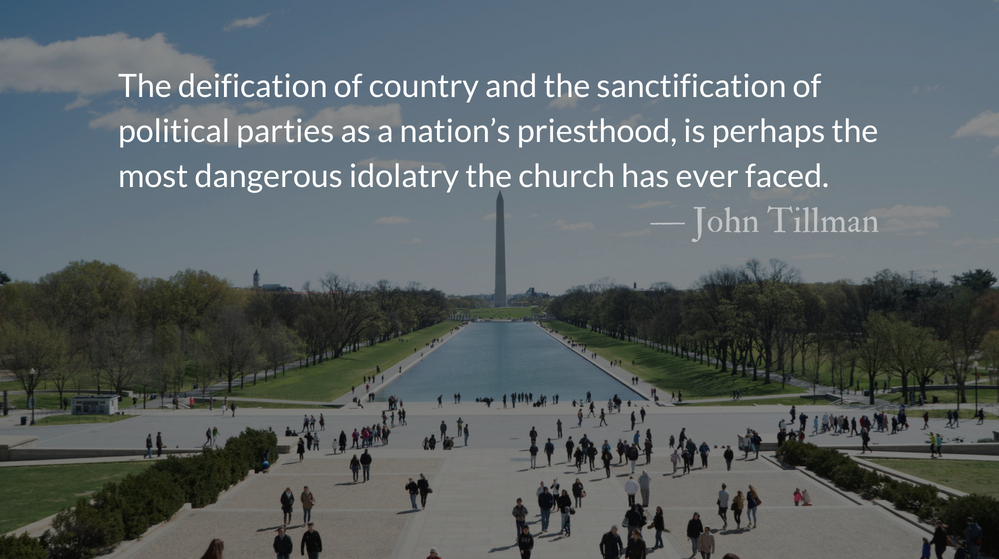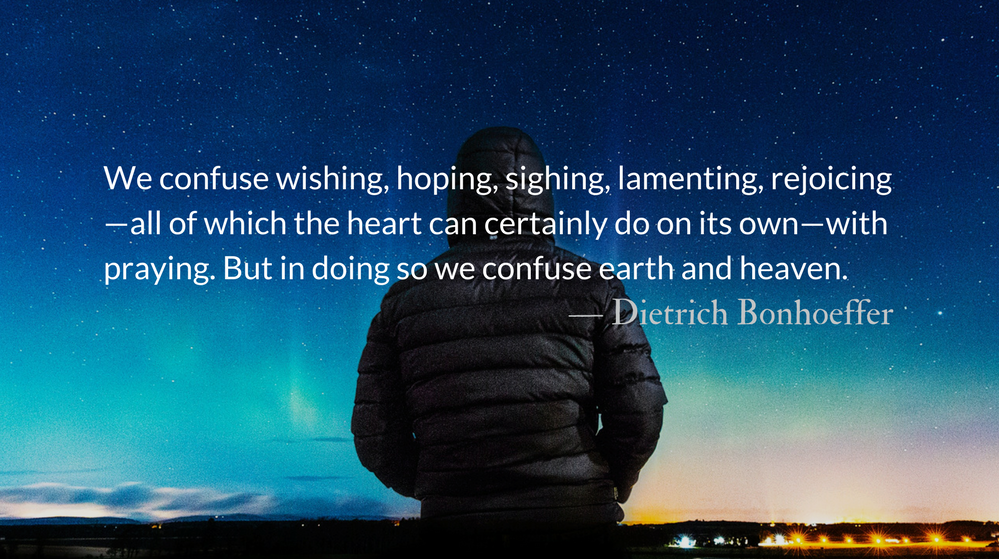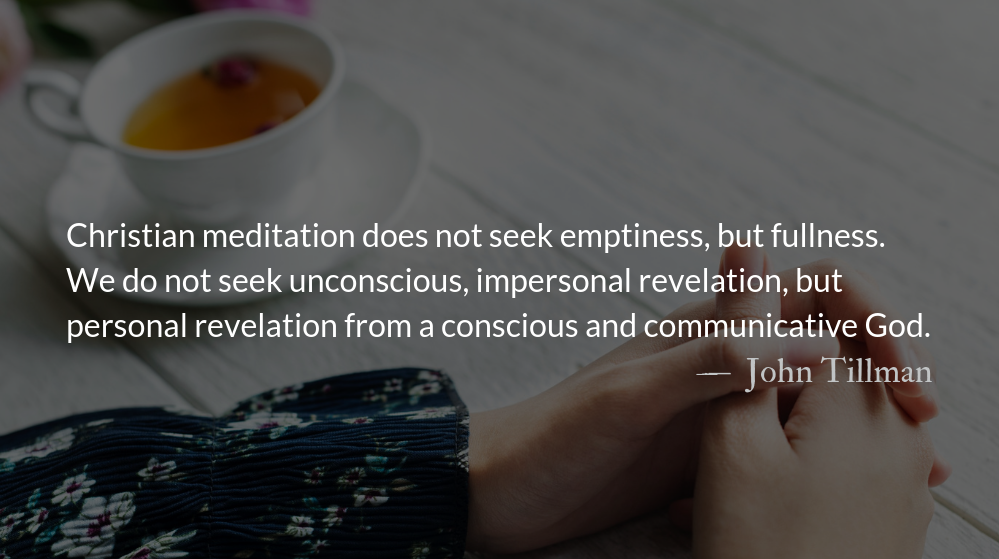From John:
Last week we explored meditation and its ability to help us navigate our anxiety-causing world. One of the chief drivers of anxiety today is the increasing divisiveness and volatility of political life. Politicians profit from anxiety. It is why we need more than ever before to be people who abide in God’s peace and rest in him, not in political prize-fighters, promises, or parties. They are selfish and unworthy shepherds, and God will deal with them.
From today’s reading: “Son of man, prophesy against the shepherds of Israel; prophesy and say to them: ‘This is what the Sovereign Lord says: Woe to you shepherds of Israel who only take care of yourselves! Should not shepherds take care of the flock? — Ezekiel 34.2
Suggested by reader, Heidi, from Virginia
When I read this post, I knew that I needed to forward it to someone I know who has grown disillusioned with the American church because of its prioritization of politics over biblical truth. I appreciate that The Park Forum consistently speaks truth to current events/these times. May we all be convicted of any and all things/people/ideas that have taken precedence in our lives over Christ.
Originally posted June 5, 2018 with readings from Isaiah 37 and Revelation 7.
After this I looked, and there before me was a great multitude that no one could count, from every nation, tribe, people and language, standing before the throne and before the Lamb. They were wearing white robes and were holding palm branches in their hands. And they cried out in a loud voice:
“Salvation belongs to our God,
who sits on the throne,
and to the Lamb.” — Revelation 7.9-10
Reflection: The Seductive Idolatry of Politics :: Readers’ Choice
By John Tillman
Politics is the idol we bring with us to church just as the Israelites worshiped Baal alongside Jehovah. Israel continued this practice until eventually, altars to Baal were set up in God’s temple supplanting true worship.
Politics is the most powerful new religion of this millennium. It continually plays on the kind of imagery we see in Revelation. But outside of Christ there will never be a day when every nation, tribe, people, and language are united. Politics promises this unity and diversity but instead gains its power from fear and division.
This religion of politics poses a greater threat to the gospel than any other religion. Politics provides everything that the darkest parts of humanity’s sinful nature want from a religion.
The State is a flawed deity that is unpredictably beneficent or wrathful. Pagan societies prefer their gods to be flawed.
Politicians and the media (which serves them) provide an ecclesiastically complex structure of priests and prophets. Schisms, conspiracies, and scandals aren’t bugs in the system; they are features.
Worshipers make ordinances of their favorite political shows, podcasts, and news sites. They attend these programs with far more regularity and commitment than they do church worship services.
They make sacrifices of time and money and perform public shows of support. They promulgate their ideology and police their relationships, disassociating with any who would blaspheme their viewpoints.
Unfriending the blasphemers is viewed as a holy, cleansing action that makes the worshiper a more pure follower and condemns the one unfriended.
The deification of country and the sanctification of political parties as a nation’s priesthood, is perhaps the most dangerous idolatry the church has ever faced. It is a serious error to conflate the identity of God’s heavenly kingdom with any earthly government. It is so easy for earnest believers to fall into this trap.
This doesn’t mean it’s un-Christian to be “political.” Quite the opposite. But we must make sure we are pursuing actions that please Christ rather than pleasing human political kingdoms.
We serve the same kingdom Christ testified to before Pilate put him to death and the kingdom Stephen saw before being stoned by the Sanhedrin.
The Lamb on the Throne is unconcerned with political expediency. When forced to choose between country, or party, and Christ, we must choose Christ.
Prayer: The Request for Presence
Be seated on your lofty throne, O Most High; O Lord, judge the nations. — Psalm 7.8
– Prayer from The Divine Hours: Prayers for Summertime by Phyllis Tickle.
Prayers from The Divine Hours available online and in print.
Today’s Readings
Ezekiel 34 (Listen – 5:11)
Psalm 83-84 (Listen – 3:10)
Additional Reading
Read More about God’s Kingdom Versus God’s Reign
As Christians today, we are often tempted, as the Israelites were, to put faith in shaping society through the exertion of governmental power.
Read More about Politically Ambiguous Religion
Faith devoted to the way of Christ is rarely politically expedient.
Support our Work
Each month over 22,000 Park Forum email devotionals are read around the world. Support our readers with a monthly or a one time donation.











